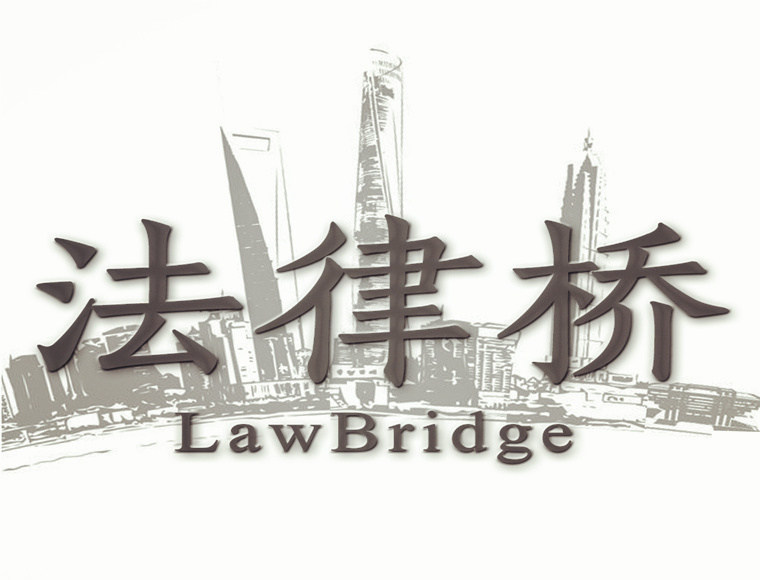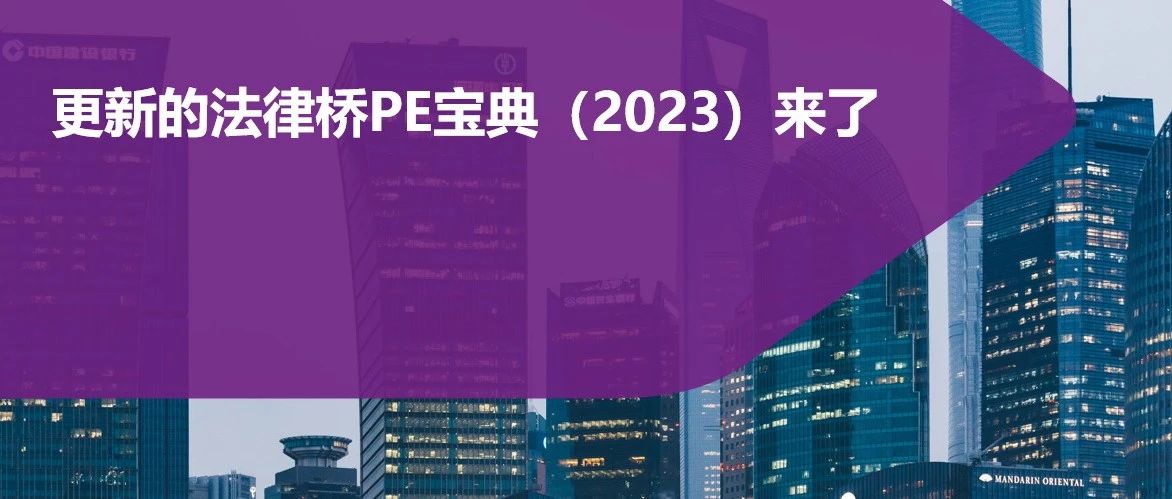A brief analysis of several core issues in converting partnership private equity funds into non-fund operations
[1] Article 30 of Guideline No. 2 stipulates that a registered corporate or partnership private equity fund shall terminate the entrusted management relationship through consensus between the investor and the private equity fund manager and continue to operate as a non-fund company or partnership. If any, the name and business scope shall be changed in a timely manner, and "fund" or other misleading words shall not be retained, and private equity fund managers shall not serve as its shareholders or partners. Within 10 working days from the date of change, the private equity fund manager shall apply to the association for fund cancellation.
A company or partnership that exists as a non-fund form may not continue to operate in the form of a fund, may not entrust a private equity fund manager to manage it again, and may not apply for registration as a private equity fund again.
01
Under what circumstances are equity funds suitable for conversion to non-funds?
1
There is a serious conflict between the fund manager (hereinafter referred to as the "manager") and the fund investors (hereinafter referred to as the "investor"), and the fund is in a "deadlock"
At any time after the completion of the registration of the equity fund in the China Asset Management Association, there is an irreconcilable conflict between the manager and the investors, but this does not exist in accordance with applicable laws and regulations, the self-regulatory rules of the China Asset Management Association, or the Partnership Agreement. (The manager is the executive partner of the fund)/The stipulation in the "Entrusted Management Agreement" (the manager is not the executive partner of the fund) may remove the manager.
2
Equity funds cannot withdraw in time
During the equity fund exit period, the equity fund cannot withdraw from the invested project in time and the investor refuses to extend the period. In recent years, due to the unsatisfactory global political and economic environment and three years of severe COVID-19 lockdowns, the entire private equity investment field has fallen into an "exit dilemma". Many investment projects have been unable to exit as scheduled when the equity fund exit period expires. Investors are unwilling to accept the extension of the fund due to various considerations (such as unwillingness to pay fund management fees, dissatisfaction with the manager's management level, etc.).
3
The manager was canceled and could not appoint a new manager in time
According to the Regulations on the Supervision and Administration of Private Investment Funds, before canceling the registration of a manager, the registration and filing agency shall notify the manager to liquidate the fund assets or transfer the fund management responsibilities to other registered private fund managers in accordance with the law. That is to say, when canceling the fund, the manager needs to liquidate the registered fund or find a "successor" to dispose of it. In business practice, there are a large number of cases where managers are forcibly canceled by the China Association of Asset Management because they have lost contact or do not meet the qualifications required by the China Association of Asset Management. In this case, it is often difficult to find a suitable new manager in the short term. Come and take over. The provisions of Guideline No. 2 on "converting to non-fund funds" allow equity funds to convert to non-fund forms to continue to exist and operate. This is especially true when investors are faced with the cancellation of the manager of the fund they invested in and the inability to find a new manager in time. A choice.
4
Existing “channel” funds[2]
Among the currently registered funds, there may still be some "channel-type" funds that have not yet been rectified. The China Fund Management Association stated that if this part of the existing channel funds involves major changes, the China Fund Management Association may require them to make rectifications based on the feedback from the China Fund Management Association. Therefore, we understand that for existing "channel-type" equity funds, "converting to a non-fund base" operation may be the best choice: first, you can go to the "channel" in an open and honest manner (that is, to terminate the entrusted management relationship with the manager) , and secondly, it can continue to exist and operate in the form of a non-fund partnership.
The above four situations are only what we consider to be more typical situations suitable for non-basic conversion, and do not exhaust all situations of non-basic conversion in commercial practice. We believe that all non-basic conversion operations should meet a major premise, that is: the investor has found an entity that is capable of continuing to operate the non-basic partnership on behalf of the manager and does not hold a manager's "license".
[2] "Channel Fund" in this article refers to a registered partnership equity fund manager who entrusts its main responsibilities for fund raising, investment, management and withdrawal to a person who is not registered with the Fund Industry Association or is not qualified to serve as a fund manager. A fund operation model in which other entities perform the required tasks, but the registered manager does not actually perform the manager's duties. Because this model actually provides other unqualified entities with channel services to avoid regulatory requirements such as investment scope, leverage constraints, and investor thresholds, it is called a "channel fund."
02
Basic conditions to be met before switching to non-fund
According to Guideline No. 2, before converting to a non-fund, investors and managers of registered equity funds should sign a non-fund conversion agreement to at least clarify the following matters:
(1) The investor and the manager agree to terminate the entrusted management relationship;
(2) If the manager is an executive partner of an equity fund, he will no longer be a partner of the partnership after converting to a non-fund, that is, he will withdraw from the partnership;
(3) Investors and managers reach an agreement on fund liquidation matters and agree on specific and feasible operational paths;
(4) The partnership after converting to non-base registration shall register the change of name and business scope with the enterprise registration authority, and no longer retain "fund" or other misleading words;
(5) The manager shall apply to China Foundation Association for cancellation of the fund within 10 working days from the date of registration change of the partnership after conversion to a non-funded partnership.
03
Basic operations of switching to non-fund
——Take equity funds as an example
1
The manager is the general partner of the equity fund
a) The manager signs a "Partnership Withdrawal Agreement" with other partners or, with the unanimous consent of other partners (unless otherwise stipulated in the partnership agreement), signs a "Partnership Share Transfer Agreement" with the partner's internal or external transferee, and agrees on the management fee , performance compensation (i.e. CARRY), settlement of fund fees;
b) The investor re-signs the "Limited Partnership Agreement": selects a new general partner/executive partner, agrees on the executive partner's remuneration, partnership fees, investment decisions (for existing projects and new projects), profit distribution, etc. matters; if the new general partner is a new partner, a "Partnership Agreement" is usually required.
2
General partner of the manager's non-equity fund
a) The manager and the equity fund sign an agreement on the termination of the "Entrusted Management Agreement" and agree on the settlement of management fees, performance compensation (i.e. CARRY), and fund expenses;
b) The partners of the equity fund sign a revised "Limited Partnership Agreement" or "Supplementary Agreement" according to the actual situation, and stipulate or change the executive partner's remuneration, partnership fees, and investment decisions (for existing projects and new projects) as necessary. , profit distribution and other matters.
04
Materials required to transfer to non-fund
According to the list of filing materials released with Guideline No. 2, and combined with the results of our telephone consultation with the China Fund Management Association, fund liquidation is required before converting to a non-fund base. The materials that need to be submitted include fund liquidation materials and fund identity cancellation materials. Among them, the completion of liquidation should comply with the provisions of Article 57 [3] of the "Private Investment Fund Registration and Filing Measures" and Article 28 [4] of Guideline No. 2. The materials that should be uploaded include the fund liquidation stamped with the official seal of the manager. Letter of commitment and previous fund liquidation reports. The liquidation report should include the distribution of fund assets and have the signatures of the manager, custodian or investor. In addition, the materials that should be submitted for fund identity cancellation include the changed business license or screenshots of the national enterprise credit information publicity system and other supporting materials.
[3] Article 57 of the "Registration and Filing Measures for Private Equity Funds" If the private equity fund contract is terminated, the private equity fund manager shall promptly liquidate the private equity fund in accordance with the fund contract. 10 working days from the date of completion of the private equity fund liquidation Submit liquidation report and other information to the association within the day. If the liquidation cannot be completed within a certain period of time, a liquidation commitment letter, liquidation announcement and other information shall be submitted to the association within 10 working days from the date of commencement of liquidation.
After the private equity fund begins to liquidate, it may no longer raise funds and may no longer make investments in the name and manner of the fund.
[4] "Private Investment Fund Registration Guidelines No. 2 - Private Equity and Venture Capital Funds" Article 28 If a private equity fund encounters any of the following circumstances, it shall be liquidated:
(1) The survival period expires and is not extended;
(2) Circumstances occur that require termination as stipulated in the fund contract;
(3) The investor and private equity fund manager decide to terminate the fund contract through consensus;
(4) Other circumstances stipulated by laws, administrative regulations, China Securities Regulatory Commission and the Association.
After the liquidation of a private equity fund is completed, the remaining fund property can be distributed to investors in the form of monetary funds, or, with the investor's consent, in the form of physical assets.
05
Prohibited behaviors after switching to a non-fund
According to the provisions of Guideline No. 2, a partnership that exists as a non-fund form shall not continue to operate as a fund. The name and business scope of the partnership shall not contain "fund" or other misleading words. The manager shall not serve as a partner of the partnership. person, the partnership shall not entrust a manager to manage it again and apply for private equity fund registration.
06
Issues to be clarified
First of all, Guideline No. 2 does not clarify the specific time when conversion to non-funds is applicable, that is: is it only applicable to the exit period of equity funds? Or does it apply to the entire life cycle of an equity fund? Secondly, Guideline No. 2 does not clearly stipulate whether equity funds need to be liquidated before converting to a non-fund base. Regarding these two key issues, we called the China Asset Management Association for consultation. The China Asset Management Association did not limit the operable time point for equity funds to convert to non-funds. In other words, equity funds can be used for their remaining lives after the completion of their registration with the China Asset Management Association. Convert to a non-fund partnership at any point in the cycle. However, the completion of fund liquidation is a prerequisite for the conversion of equity funds into non-funds. The China Foundation Association also stated on the phone that the relevant systems of the China Foundation Association currently do not have an independent fund identity cancellation (i.e., non-fund base) module, and fund cancellation must be handled in the fund liquidation module. Before the liquidation of the fund has been completed, the conversion to non-fund base cannot be performed.
Authors
Lawyer YangChunbao
First class lawyer
Senior Partner, Dentons (Shanghai) Law Firm

Mail:
chambers.yang@dentons.cn
Leader of the private equity and investment fund professional group and TMT industry group of Beijing Dacheng (Shanghai) Law Firm, deputy director of Dacheng China Science, Technology, Culture, Leisure and Entertainment Professional Committee, and member of Shanghai’s foreign-related legal talent pool. Bachelor of Laws from Fudan University (1992), Master of Laws from University of Technology Sydney (2001), Master of Laws from East China University of Political Science and Law (2001).
Attorney Yang has been practicing law for 28 years and has long been engaged in private equity funds, investment and financing, and mergers and acquisitions legal services, covering TMT, big finance, big health, real estate and infrastructure, exhibition industry, manufacturing and other industries. Since 2004, he has been specially recommended or commented by The Legal 500 and Asia Law Profiles many times. Since 2016, he has been continuously selected as one of the "100 Outstanding Lawyers in China" by China Business Law Journal, an internationally renowned legal media, and won the "China Business Award" from Leaders in Law - 2021 Global Awards. "Corporate Law Expert of the Year" title; listed in the first "Excellent Lawyers & Law Firms Recommended by Well-known Corporate Law Firms in China"; won many awards such as Lawyer Monthly and Finance Monthly's "China TMT Lawyer Award" and "China M&A Lawyer Award" . Qualified as an independent director of listed companies, he is a part-time professor at East China University of Science and Technology Law School, a part-time tutor at Fudan University Law School, a part-time graduate tutor at East China University of Political Science and Law, a lecturer at Shanghai Jiao Tong University’s private equity CEO class, and a lecturer at the Shanghai Municipal Commerce Commission’s transnational management talent training class. Published 16 monographs including "Practical Operations and Case Reviews of Enterprise Legal Risk Prevention and Control", "Winning Capital 2: A Complete Operational Guide to the Company's Investment and Financing Model Process", and "Practical Operations of Risk Prevention and Control of Private Equity Investment Funds". Attorney Yang’s practice areas are: companies, investment M&A and private equity funds, capital markets, TMT, real estate and construction projects, as well as dispute resolution in the above fields.
Authors
Lawyer Sun Tian
Partner of Dentons (Shanghai) Law Firm

Mail:
sun.zhen@dentons.cn
Before practicing law, Mr. Sun served as executive assistant to the president or vice president of the global, Asia-Pacific or China regions in Fortune 500 companies such as Watts, Ingersoll Rand and Alcatel-Lucent in the United States. He accumulated rich experience in corporate operation management and has the qualifications Excellent bilingual communication and coordination skills in Chinese and English. Attorney Sun published "Private Equity Investment Fund Risk Prevention and Control Operational Practice" and published dozens of articles in the fields of mergers and acquisitions, funds, and e-commerce. Attorney Sun’s areas of expertise are: private equity investment, corporate mergers and acquisitions, e-commerce and labor law matters.
Authors
Li Jiaxin
Paralegal at Dentons (Shanghai) Law Firm

He holds a bachelor's degree in law from Fudan University. He has participated in the due diligence of multiple parent funds in selecting fund managers and establishing sub-fund projects, due diligence of fund investment target companies, and daily legal services related to fund raising, investment, management and exit.
PE&TMT Legal Bridge

Presiding lawyer: Yang Chunbao, first-class lawyer
Phone/WeChat: 1390 182 6830
Business contact and submission email:
chambers.yang@dentons.cn
Address: 9th/24th/25th floor, Shanghai World Financial Center, No. 100 Century Avenue, Shanghai






















































First, please LoginComment After ~